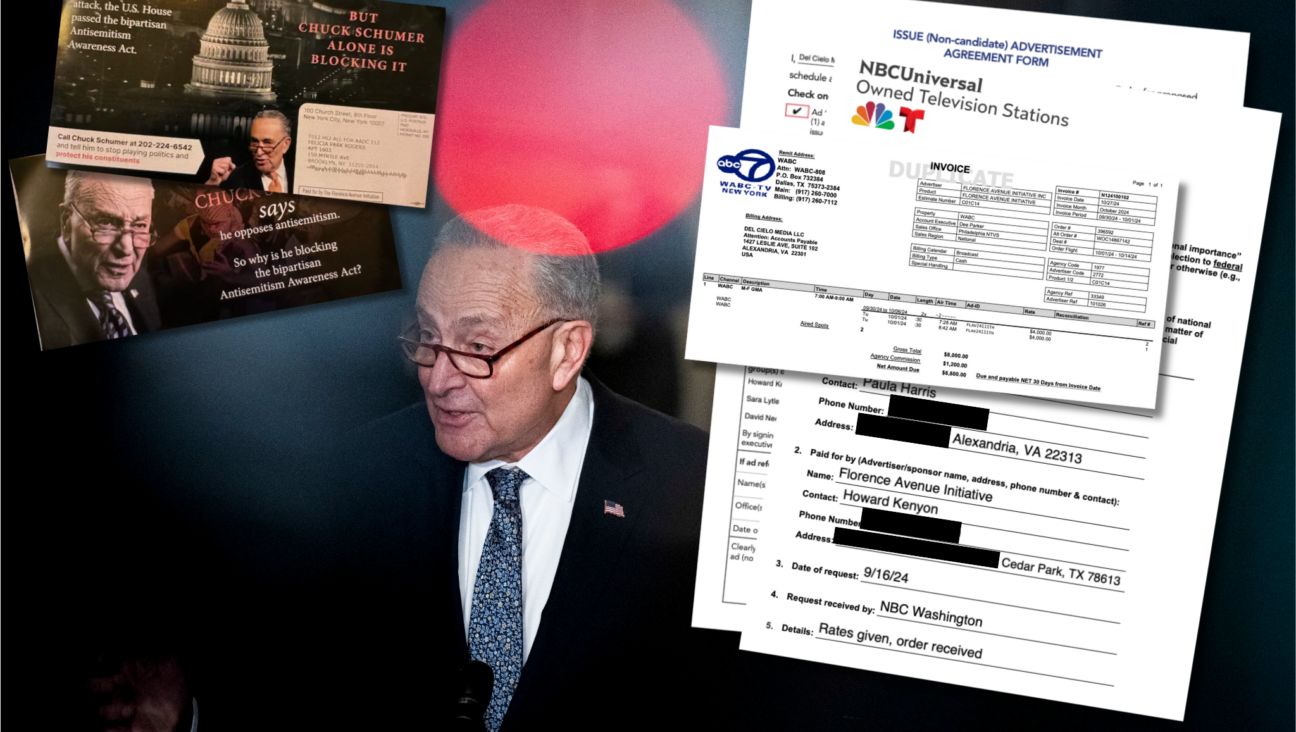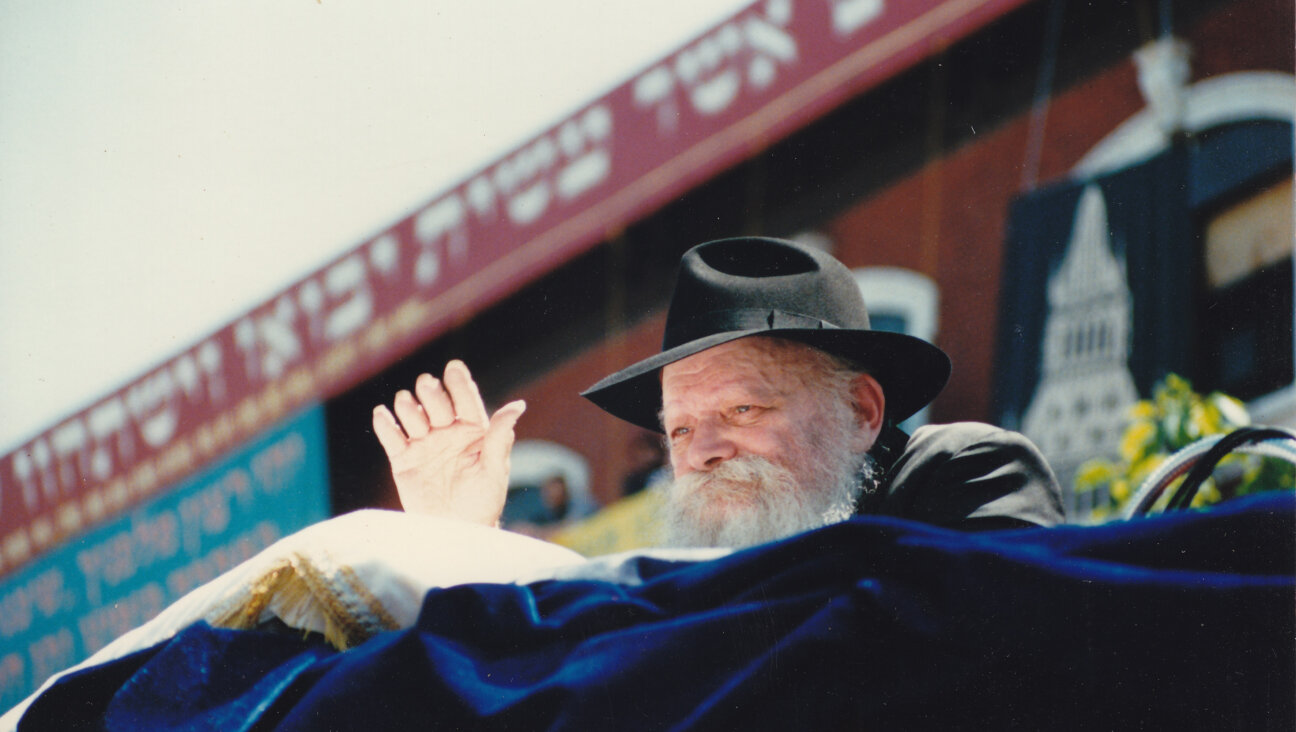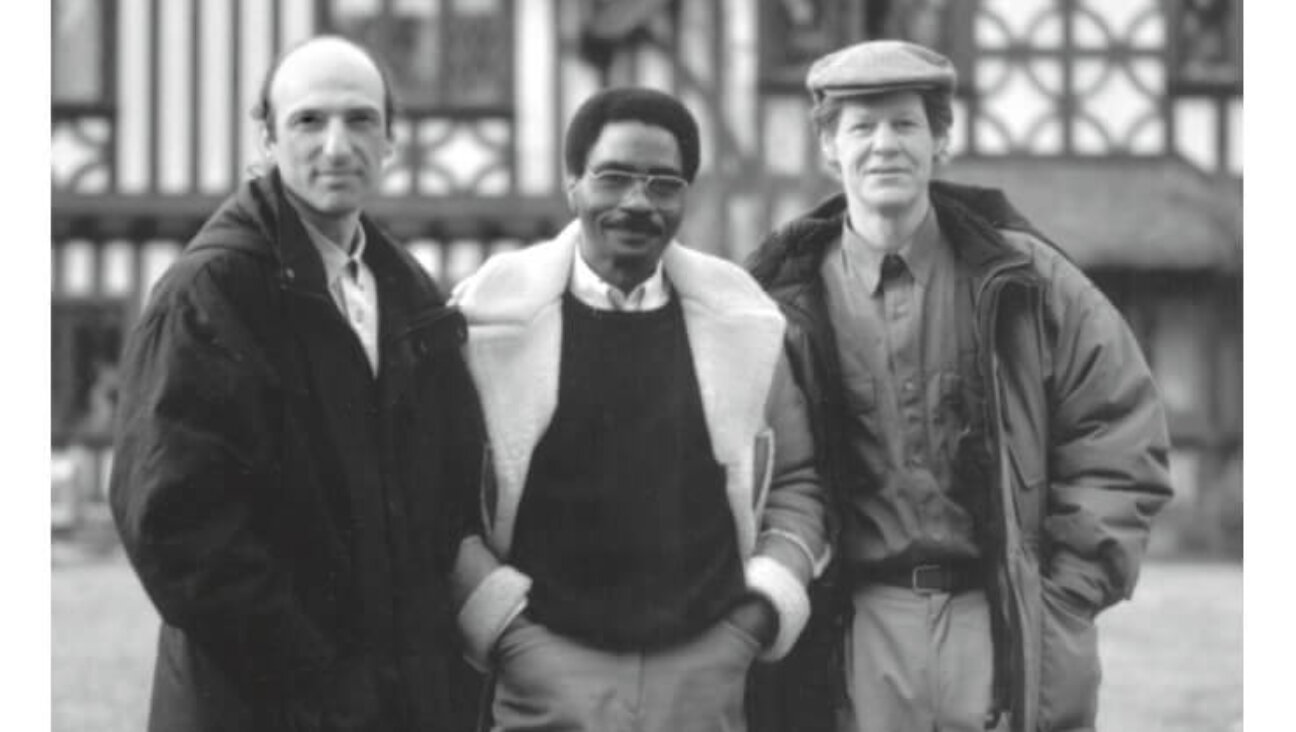October 3, 2003
Communal Celebration Not Just a Private Party
I am grateful to Karla Goldman for her thoughtful September 19 opinion article on the planning conference convened by Celebrate 350 (“Throw an Open Party for U.S. Jewry’s 350th”).
Goldman recognizes the historic significance of the celebration to be launched officially in September 2004, 350 years after the arrival of the first Jewish community in New Amsterdam in 1654. She also recognizes and properly emphasizes the challenges presented by this enterprise: The challenge to be inclusive in a community marked by diversity, the challenge to be relevant in a world marked by rapid change and the challenge to do justice to what we now recognize as “the complex realities of the history of American freedom.”
The men and women who serve on the steering committee of Celebrate 350 and the many more who gathered at the inaugural national planning conference on September 9 are acutely aware of those challenges. They understand that this milestone in Jewish and American history is not the private property of any one group. They understand that the extraordinary transformation of the role of women in America and in American Jewish life is among the outstanding developments of the last 50 years. They recognize that the story of freedom in America is not without its dark nights.
But they also recognize that after 350 years the American Jewish experience has been a success story that calls for celebration, that this generation needs to reaffirm its commitment to the values that have made that success possible, and that we have an obligation to “leave a legacy commensurate with the vitality and potential of today’s American-Jewish community,” as Goldman so eloquently puts it.
We hope, therefore, that as 2004 approaches Jewish communities and institutions all across the United States will undertake to study our history, to celebrate our achievements and identify our shortcomings, and to plan for a future worthy of our heritage and of the opportunity we enjoy.
Robert Rifkind
Chairman
Celebrate 350 Governing Board
New York, N.Y.
During the 1960s, I studied at Columbia University with eminent historian Salo Baron. When questioned by students about his monumental historical works, he would challenge us in this way: “Ladies and gentlemen, you have to go out and write the communal, institutional and synagogue histories so that future Jewish historians can use your work in writing their mammoth histories of the Jews.”
I would argue a similar point in regard to the celebration of the 350th anniversary of the beginning of American Jewish communal life. Since I have not studied the 1905 and 1954 anniversary celebrations as opinion writer Karla Goldman has, all I can relate to is the 1976 American bicentennial.
In Wilmington, Del., the newly formed Jewish Historical Society of Delaware was given the opportunity by the Historical Society of Delaware to mount a one month Jewish bicentennial exhibit in January 1976 in the Town Hall building, the oldest structure in Wilmington. The exhibit turned into a major showcase of the history of Jews in Delaware. The archives of the society created then is now a major repository of local Jewish history, and has already provided valuable research material for books and academic papers.
During 1976, Jewish Bicentennial exhibits were held in Philadelphia, New York, Baltimore, Chicago, St. Louis, San Francisco, Los Angeles and Norfolk, Va. Almost all of them produced major archival collections of local Jewish history, but more importantly, Jews in these communities felt that they were celebrating the bicentennial as American Jews.
To help make the 350th of American Jewry work, communal exhibits are needed so that the anniversary becomes a personal celebration. Here in Scranton, Pa., we have been working for more than a year on a major exhibit on local Jews.
It is not too late for every American Jewish community to plan an exhibit so the 350th will be a major celebration throughout this great nation. There are models which can be followed. Clearly, someone has to take the initiative.
Rabbi David Geffen
Scranton, Pa.
Nursing Home Crisis Shows Our Negligence
The September 19 article on the over-priced Jewish nursing home in St. Louis highlights a problem that our entire country is facing, and one in which Jews seem to offer little assistance (“Home’s Price Hike May Put Medicaid Seniors Out of Bed”).
Sure, money is a factor, but isn’t it always? As Jews, do we follow the majority solution of not lowering executive’ salaries, asking low-paid workers to sacrifice and leaving fewer beds for Medicaid and Medicare patients? Once upon a time, when Jews were not so welcome in society, we found ways to take care of our own without looking for models from the majority groups that surrounded us. Now we mimic them, and feel no guilt that as a result less affluent Jewish patients are “asked” to move.
How does a Jewish administrator feel justified in earning more than $400,000 a year, for no reason other than that colleagues in similar positions earn comparable salaries? Shouldn’t there be some relation to conditions in the community that justifies the wages meted out — to workers as well as to administrators?
As we observe the High Holy Days, isn’t it time to challenge one another to act as if being Jewish makes a difference? Our prophets distinguished Judaism from all other religions by calling out to us about our faults. We could certainly use those prophets now.
Nathan Adler
Rome, Ga.
There is an alternative to the nursing home crisis we are experiencing here in St. Louis.
Surely, there are Jewish nursing homes throughout the country that have found a way to serve everyone, while still making a profit. For those successful business owners, St. Louis represents a real opportunity. Further, the existing facility is sitting on millions of dollars in endowments accumulated over more than a hundred years. With no alternative facility, those endowments will probably be lost, but with an alternative institution, those endowments could probably be put to good use.
Other Jewish communities can and should learn from the situation in St. Louis. The reason for our problems is that we have allowed wealth to be confused with leadership — as has become customary in so many Jewish communities. The hard lesson here is that there is only one way to ensure Jewish communal institutions serve the needs of their entire community, and that is by appointing boards that reflect the full economic and religious diversity of the community.
David Rubin
St. Louis, Mo.
Survey Should Measure Meaning, not Numbers
While I do not advocate intermarriage as the most successful path to increased vitality for the Jewish people — in fact, far from it — I am deeply disturbed by our obsession with it (“Survey Iz Mir,” September 26).
Recent coverage of the The National Jewish Population 2000-01 study focuses primarily, if not exclusively, on intermarriage rates within the Jewish community, with many interpreters equating that figure with the extent to which individuals feel connected Jewishly. It’s worth noting, however, that each of the intermarried respondents, regardless of how alienated they are presumed to be, took as much as one full hour to contribute to a study whose only purpose was to provide information to the very community about which they are assumed not to care.
Perhaps those so-called disconnected respondents care more about their Jewishness than the researchers’ questions were able to measure. Perhaps their participation in the survey reflects their caring more than the survey’s interpreters can appreciate. Next time, the study should focus not on demography, but on biography — not on the category within which people happen to fall, but on what being in that category means to them.
Rabbi Brad Hirschfield
Vice President
CLAL—The National Jewish Center for Learning and Leadership
New York, N.Y.
Irish Founder de Valera Was Dissident Leader
Shlomo Avineri’s September 26 opinion article, while otherwise exemplary, is wrong in asserting that Eamon de Valera ruthlessly decided to suppress the dissidents who “opted to continue the armed struggle against the British, in the process threatening the authority of the nascent government in Dublin”(“The Failed State of the Palestinians”).
As any admirer of the movie “Michael Collins” knows, de Valera sent Collins, who led the Irish Republican Army’s guerrilla campaign against the British while de Valera was in exile in the United States, to London to negotiate for independence. When Collins brought back an agreement giving independence to the Irish Free State without the 10 provinces in the north, de Valera actually led the IRA dissidents against the Collins government. Ultimately, this led to the assassination of Collins while on his way to attempt to negotiate peace with de Valera.
Marvin Wasserman
New York, N.Y.
A message from our CEO & publisher Rachel Fishman Feddersen

I hope you appreciated this article. Before you go, I’d like to ask you to please support the Forward’s award-winning, nonprofit journalism during this critical time.
We’ve set a goal to raise $260,000 by December 31. That’s an ambitious goal, but one that will give us the resources we need to invest in the high quality news, opinion, analysis and cultural coverage that isn’t available anywhere else.
If you feel inspired to make an impact, now is the time to give something back. Join us as a member at your most generous level.
— Rachel Fishman Feddersen, Publisher and CEO























